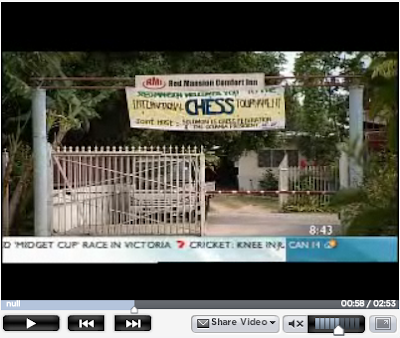Because playing chess requires precision and calculation is typically the single most important factor between winning and losing.
I myself have gotten lost in complications before and have made moves which are not optimal. Herein lies the predicament of chess at the lower levels.
If you give your opponents a myriad of choices to play, they will make at least one mistake in the process. And this naturally applies both ways.
This is why that most players advocate sharpening your tactical and calculation skills.
But why does tactical skill seem to elude many players (including myself)?
One of the reasons, in my case is that my pattern recognition skill is poor. While there are trillions of possible chess positions, certain fixed chess positions occur again and again. And it is these positions that tend to become the foundation of our ideas when we do our strategic planning during the game.
And unfortunately, this requires a certain degree of memorisation. We need to literally "open our eyes and our minds" and become receptive to new concepts and ideas. Once our minds become more accustomed to these tactics, unconsciously, our ability to put our pieces to better positions improve. We start to see and evaluate positions better.
The ability to constantly find the best move in the modern game is a task that is very hard to accomplish. But with constant revision and practice, it is possible to improve this aspect of the game. And one way to do it is to work through tactical puzzles, lots and lots of it (Not puzzles from made up positions, but puzzles taken from actual games/studies).
Since my long layoff from chess, my tactical vision has deteriorated alarmingly (I lost all my blitz games to my friend's son Dylan a couple of nights ago) and I'd realised that it is because my chess knowledge has not been "engraved" into my physical consciousness. I need to acquire the ability to make good moves as easy as I am taking a breath of fresh air.
As a final note, here's a cute little puzzle from one of my games. My opponent moved differently prior to this and we diverted but I was calculating this position in one of the minor variations in the leadup to this.
In the following diagram, White tries to fend off Black's crushing attack (White had used up an enormous amount of Queen moves to snatch pawns at the deadly cost of lagging behind in development) and plays 1. Nh3?
Is there anything that Black can exploit? Or may be there is a checkmate somewhere in there?

Answer as usual can be found by highlighting between the brackets
[
The reply was swift and deadly:
1. ... Rxc2+!
1st response:
2. Kb1 is met with Qxa3!! After 3. bxa3 Nc3+ with mate to follow.
2nd response:
2. Nxc2 Rc8! White is helpless against the threats of Qa1 and Rxc2 and cannot defend both.
]



